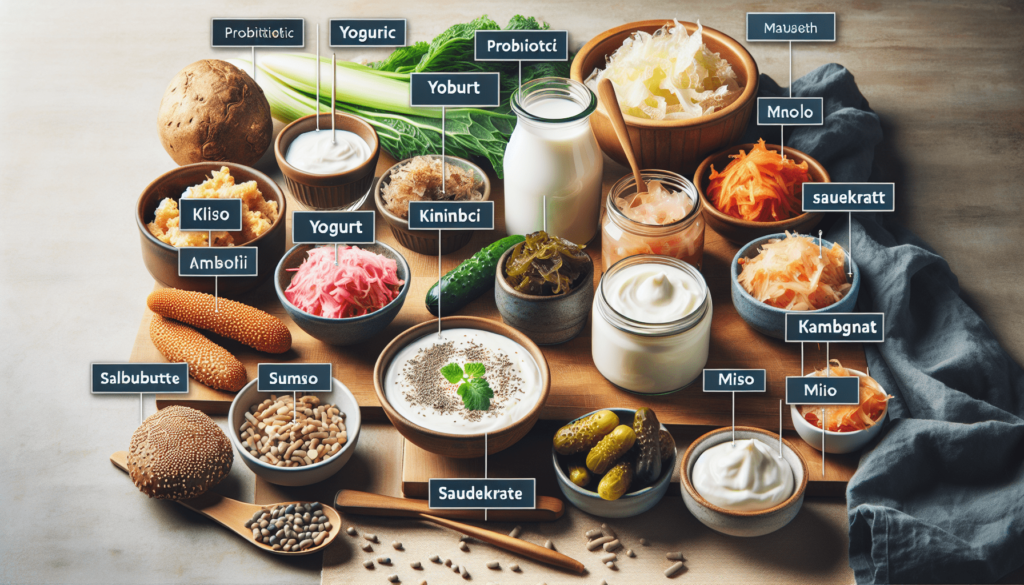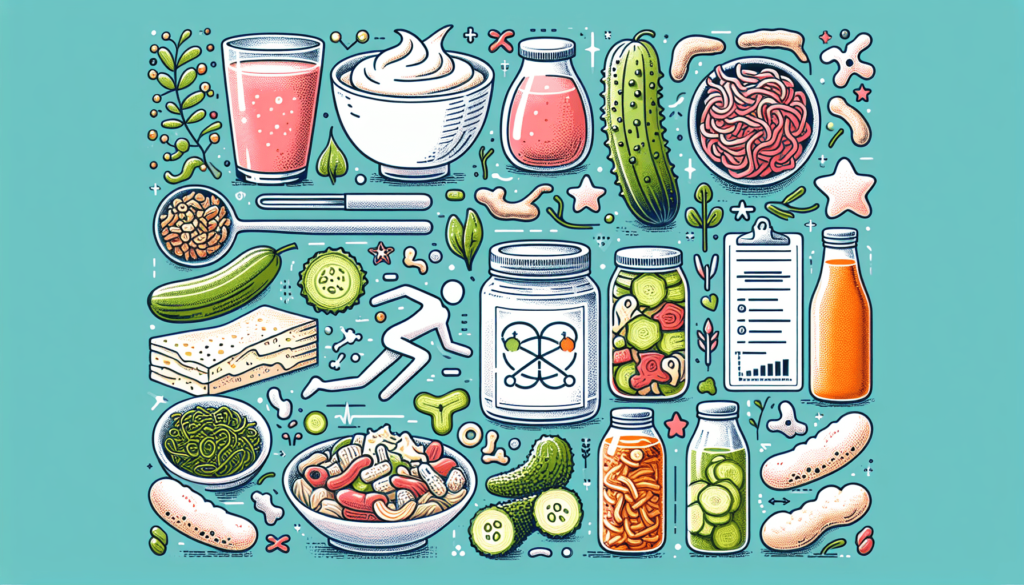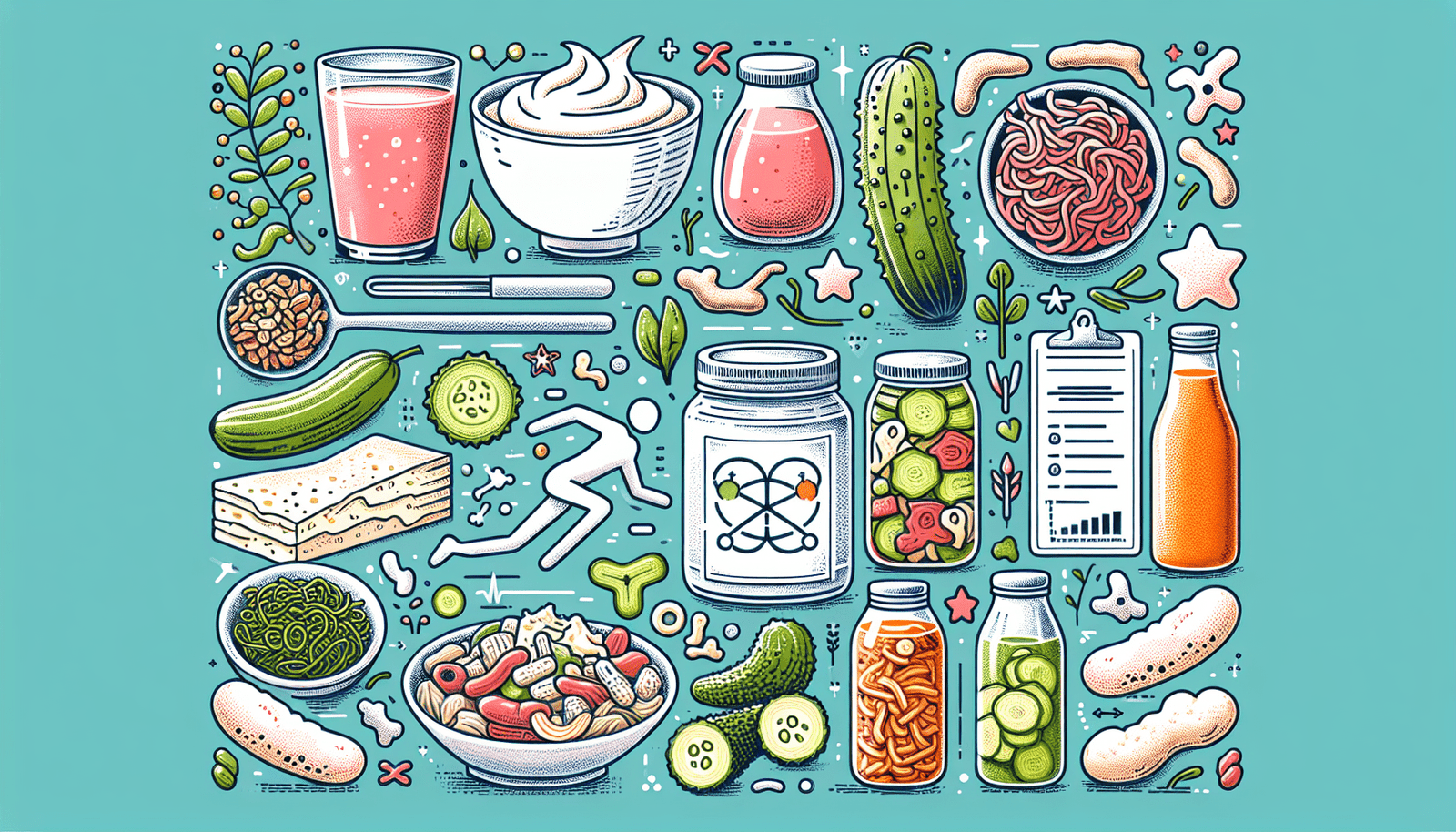Have you ever wondered how you can improve your gut health and overall wellness with your diet? Look no further than probiotic foods! These foods are packed with beneficial bacteria that can help support your digestive system and boost your immune system. In this comprehensive guide, we will explore everything you need to know about probiotic foods, from the benefits they offer to the best food sources to incorporate into your diet.

What are Probiotic Foods?
Probiotic foods contain live beneficial bacteria that can help improve the balance of microorganisms in your gut. These good bacteria are essential for maintaining a healthy digestive system and can also have a positive impact on your overall health. Incorporating probiotic foods into your diet can help promote the growth of beneficial bacteria in your gut, leading to better digestion, improved immunity, and overall wellness.
Why are Probiotic Foods Important?
Probiotic foods play a crucial role in maintaining a healthy gut microbiome, which is essential for your overall health. Your gut is home to trillions of bacteria, both good and bad, that play a key role in digestion, immunity, and even mental health. When the balance of these bacteria is disrupted, it can lead to digestive issues, weakened immunity, and other health problems. By consuming probiotic foods, you can help replenish the good bacteria in your gut, promoting a healthy balance and supporting your well-being.
Benefits of Probiotic Foods
Probiotic foods offer a wide range of health benefits beyond just improving your digestive health. Here are some of the key advantages of incorporating probiotic foods into your diet:
Improved Digestion
Probiotic foods can help improve digestion by promoting the growth of beneficial bacteria in your gut. These good bacteria play a crucial role in breaking down food, absorbing nutrients, and maintaining a healthy digestive system. By consuming probiotic foods, you can support your gut health and enhance your digestive function.
Enhanced Immunity
A large portion of your immune system is located in your gut, making a healthy gut microbiome essential for a strong immune system. Probiotic foods can help boost your immunity by supporting the growth of beneficial bacteria in your gut. These good bacteria can help fight off harmful pathogens and strengthen your body’s defense mechanisms, keeping you healthy and protected.
Mood Regulation
Believe it or not, your gut health can also impact your mood and mental well-being. The gut-brain connection is a powerful link that influences your emotions, stress levels, and mental health. Probiotic foods can help support a healthy gut microbiome, which in turn can positively impact your mood and reduce symptoms of anxiety and depression.
Weight Management
Maintaining a healthy balance of gut bacteria is crucial for weight management and metabolic health. Probiotic foods can help regulate your metabolism, reduce inflammation, and support healthy weight loss. By incorporating probiotic foods into your diet, you can promote a healthy gut microbiome that may aid in weight management and overall wellness.
Skin Health
Your gut health can also have a significant impact on the health of your skin. Probiotic foods can help improve the balance of bacteria in your gut, which may lead to clearer, healthier skin. Consuming probiotic foods may help reduce inflammation, prevent acne, and promote a radiant complexion from the inside out.

Best Food Sources of Probiotics
Now that you understand the importance and benefits of probiotic foods, let’s delve into some of the best food sources you can incorporate into your diet. Here are some of the top probiotic foods that can help support your gut health and overall wellness:
Yogurt
Yogurt is one of the most well-known probiotic foods and is a staple in many diets around the world. This fermented dairy product is rich in beneficial bacteria, such as Lactobacillus and Bifidobacterium, which can help promote a healthy gut microbiome. When choosing yogurt, opt for varieties that contain live and active cultures to ensure you’re getting the full probiotic benefits.
Kefir
Kefir is a tangy, fermented milk drink that is similar to yogurt but has a thinner consistency. It is packed with probiotics, vitamins, and minerals that can help support your gut health. Kefir contains a diverse range of beneficial bacteria and yeast strains that can help improve digestion, boost immunity, and promote overall wellness.
Sauerkraut
Sauerkraut is a fermented cabbage dish that is a popular probiotic food in many cultures. It is made by fermenting cabbage with salt and water, which creates a rich source of beneficial bacteria, such as Lactobacillus. Sauerkraut is not only delicious but also a great way to introduce probiotics into your diet and support your gut health.
Kimchi
Kimchi is a traditional Korean dish made from fermented vegetables, such as cabbage and radishes, flavored with spices and seasonings. It is a flavorful and spicy probiotic food that is rich in beneficial bacteria, vitamins, and antioxidants. Kimchi can help promote a healthy gut microbiome, enhance digestion, and support your overall health.
Miso
Miso is a traditional Japanese seasoning made from fermented soybeans, salt, and koji (a type of fungus). It is a versatile ingredient that can be used in soups, marinades, dressings, and more. Miso is a probiotic food that is rich in beneficial bacteria and enzymes that can help improve digestion, boost immunity, and support a healthy gut microbiome.
Tempeh
Tempeh is a plant-based probiotic food made from fermented soybeans that have been pressed into a dense patty. It is a popular meat substitute and is rich in protein, fiber, and vitamins. Tempeh contains beneficial bacteria and yeast that can help promote a healthy gut microbiome, support digestion, and enhance overall wellness.
Kombucha
Kombucha is a fizzy, fermented tea drink that is made by fermenting sweetened tea with a symbiotic culture of bacteria and yeast (SCOBY). It is a popular probiotic beverage that is rich in beneficial bacteria, acids, and antioxidants. Kombucha can help support your gut health, boost your immunity, and provide a refreshing and delicious way to get your daily dose of probiotics.
How to Incorporate Probiotic Foods Into Your Diet
Now that you know the best food sources of probiotics, let’s explore some simple and tasty ways to incorporate these foods into your daily diet. By adding probiotic foods to your meals and snacks, you can support your gut health and enjoy the many benefits they offer. Here are some tips on how to include probiotic foods in your diet:
Start Your Day with Yogurt
A great way to incorporate probiotics into your diet is by starting your day with a bowl of yogurt topped with fresh fruit, nuts, and seeds. You can also add yogurt to smoothies, parfaits, and overnight oats for a creamy and nutritious boost of probiotics.
Enjoy Fermented Foods as Side Dishes
Fermented foods like sauerkraut, kimchi, and pickles make delicious and tangy side dishes that can complement a variety of meals. Add a spoonful of fermented vegetables to your salads, sandwiches, or grain bowls to introduce probiotics to your plate and enhance the flavor of your dishes.
Include Miso in Soups and Stir-Fries
Miso is a versatile ingredient that can add depth and umami flavor to soups, stews, stir-fries, and marinades. Incorporate miso paste into your favorite recipes to infuse them with probiotics, enzymes, and antioxidants that can support your gut health and elevate the taste of your dishes.
Sip on Kombucha Throughout the Day
Kombucha is a refreshing and effervescent beverage that is perfect for sipping throughout the day. Enjoy a glass of kombucha with your meals, as a midday pick-me-up, or as a tasty alternative to sugary drinks. Kombucha is a simple and enjoyable way to add probiotics to your daily routine.
Experiment with Tempeh in Plant-Based Dishes
Tempeh is a versatile ingredient that can be used to create a wide range of plant-based dishes, from stir-fries and salads to burgers and tacos. Experiment with tempeh in your cooking to enjoy its nutty flavor, chewy texture, and abundance of nutrients. Tempeh is a great source of probiotics that can enhance the flavor and nutrition of your meals.
Blend Up a Smoothie with Kefir
Kefir is a creamy and tangy dairy drink that can be used as a base for delicious and nutritious smoothies. Mix kefir with fresh or frozen fruit, leafy greens, and protein powder for a satisfying and probiotic-rich beverage. Smoothies made with kefir are a quick and easy way to get your daily dose of probiotics while enjoying a refreshing treat.
Probiotic Supplements: Are They Necessary?
While incorporating probiotic foods into your diet is an effective way to support your gut health, you may be wondering if probiotic supplements are necessary. Probiotic supplements are concentrated forms of beneficial bacteria that can be taken in capsule, tablet, or powder form. These supplements are designed to deliver a high dose of probiotics to help replenish your gut microbiome and improve your overall health.
When to Consider Probiotic Supplements
Probiotic supplements may be beneficial in certain situations, such as:
- If you have digestive issues, such as bloating, gas, constipation, or diarrhea.
- If you have recently taken antibiotics, which can disrupt the balance of bacteria in your gut.
- If you have a weakened immune system and are looking to boost your immunity.
- If you have a specific health condition, such as irritable bowel syndrome (IBS) or inflammatory bowel disease (IBD).
Choosing the Right Probiotic Supplement
When selecting a probiotic supplement, consider the following factors:
- Strain Diversity: Look for a supplement that contains a variety of bacterial strains to support different aspects of your gut health.
- CFU Count: Check the colony-forming units (CFU) count to ensure you are getting a sufficient dose of probiotics.
- Live Cultures: Choose a supplement that contains live and active cultures for maximum efficacy.
- Quality and Purity: Opt for a reputable brand that ensures the quality, purity, and safety of their probiotic products.
Consult with a Healthcare Professional
Before adding probiotic supplements to your routine, it is advisable to consult with a healthcare professional, such as a doctor or nutritionist. They can provide personalized recommendations based on your individual health needs, dietary preferences, and any underlying conditions you may have. A healthcare professional can help you determine if probiotic supplements are right for you and guide you on the best options for your specific situation.
Final Thoughts
In conclusion, probiotic foods are an excellent addition to your diet that can help support your gut health, enhance your immunity, and improve your overall well-being. By incorporating probiotic-rich foods like yogurt, kefir, sauerkraut, kimchi, miso, tempeh, and kombucha into your meals and snacks, you can enjoy the many benefits these foods offer. Remember to choose high-quality probiotic sources, experiment with new recipes, and listen to your body to discover what works best for you.
We hope this comprehensive guide to probiotic foods has been informative and inspiring. Start exploring the world of probiotics today and discover the positive impact they can have on your health and happiness. Here’s to a healthy gut and a vibrant life!

